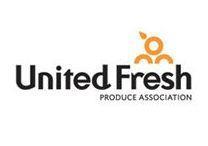
the United Fresh Produce Association has submitted comments to the Food and Drug Administration (FDA) on two of the proposed rules under the Food Safety and Modernization Act (FSMA): the Standards for the Growing, Harvesting, Packing, and Holding of Produce for Human Consumption (Produce Safety Rule) and the Current Good Manufacturing Practice and Hazard Analysis and Risk-Based Preventive Controls for Human Food (Preventive Controls Rule).
According to United Fresh, the comments reflect ten months of review by diverse expert working groups representing numerous member companies throughout the fresh produce supply chain.
“There is nothing more important than advancing food safety in fresh produce, and these proposed rules are an important milestone in that mission,” said United Fresh president and CEO Tom Stenzel. “United Fresh continues to support the public health goals of the FSMA law and is committed to working closely with the FDA to ensure that the regulations can be implemented in the most practical and efficient way possible.”
According to Dr David Gombas, United Fresh senior vice-president of food safety and technology, the association’s nearly 100 pages of comments are intended to give the FDA the best real-world information about produce industry practices and how the proposed regulations can help enhance public health, without adding needless burdens that could drive producers and distributors out of business.
“We want to ensure FDA establishes food safety provisions that reflect FSMA’s risk-based, scientific approach, recognising the diversity of fruit and vegetable production,” Gombas said.
In its comments on both the Produce Safety Rule and the Preventive Controls Rule, United Fresh raises several key issues, such as a perceived one-size-fits-all approach to produce, irrigation water testing requirements, the definition of farm and farming activities, and a request for revised proposed rules.
“United appreciates the extensive work that FDA has put into drafting these new proposed regulations, representing the most significant change to food safety law in more than 70 years,” Stenzel said. “That’s why it’s so important that the agency take the time to understand not only our comments but those of all stakeholders.
'These proposals were a good first step, but can be significantly enhanced to be more effective in protecting public health, while allowing produce growers and distributors to continue providing an abundance of healthy and affordable fresh produce to consumers.”



